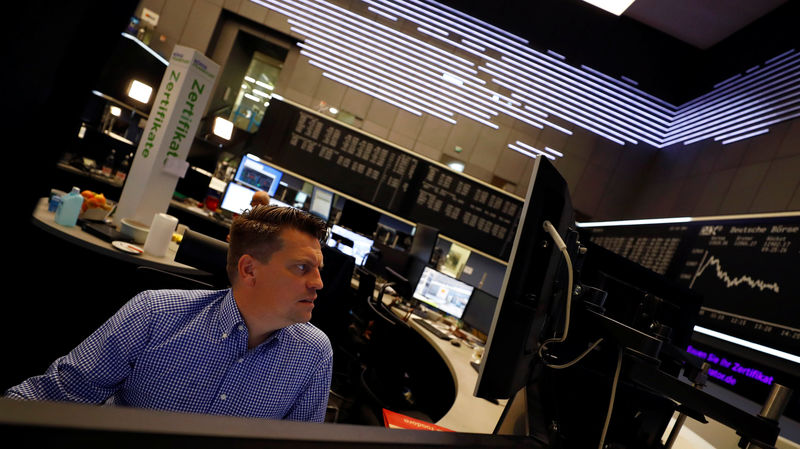Gold prices edge higher on raised Fed rate cut hopes
Investing.com -- Barclays (LON:BARC) strategist Emmanuel Cau sees limited upside for European equities as markets head into the summer months, due to elevated valuations, macro uncertainty, and seasonal risks.
While equities are nearing year-to-date highs and supported by strong momentum, resilient earnings, and ample liquidity, Cau notes that “a lot of good news is arguably priced in” and warns of “resilience fatigue” setting in.
He maintains that the “path of least resistance still feels higher” in the absence of a strong negative catalyst, but rising volatility in trade headlines and macro risks could weigh on investor sentiment.
The strategist highlights several key concerns, including the looming deadline on U.S. tariff pauses, the stagflationary impact of protectionist policies, and a stronger euro that may hurt European exporters.
“We feel some ‘resilience fatigue’ and see limited upside for EU equities into the tricky summer seasonality,” Cau said in a note.
The bank retains a cautious outlook on earnings, reiterating its forecast for flat EPS growth in Europe this year, even as consensus estimates have stabilized at around +3%. It expects a recovery to 8% EPS growth in 2026, supported by improving fundamentals and German fiscal stimulus.
However, Cau cautions that a further re-rating in price-to-earnings (P/E) multiples from here depends on “improving activity momentum,” with valuations now “rich again” despite being relatively undemanding versus U.S. peers.
Strategically, Barclays stays Market-weight Europe versus the U.S., favoring Germany and the European periphery, while maintaining an Overweight on the U.K. as a hedge against stagflation.
The bank also favors a barbell allocation across sectors, balancing cyclicals like banks and tech with defensives such as telecoms.
“Big picture, we think the nascent diversification away from the US into international markets could have legs,” Cau noted, but cautioned that U.S. equities continue to benefit from “strong earnings power and Big Tech dominance.”
Cau also flagged that while recession is not Barclays’ base case, “global growth is still expected to slow below trend in 2025, and inflation to remain sticky at a high level,” leaving central banks, especially the Fed, with limited room to manoeuvre.
Meanwhile, hard data remains resilient and the U.S. consumer is holding up.
